
Part 1: Kharkiv, Start of the war.
Table of Contents
Even before the start of the war, there was a lot of talk about it, as there were flashes of news about the concentration of Russian troops near the borders of Ukraine, opinions on this matter were mixed. Someone left the country before the war, someone knew that there would be a war for sure, but had no permission to talk about it so as not to cause panic, others stayed and believed that nothing would happen and there was nothing to worry about.
I gave birth to a daughter in January 2022, so in those key months when the invasion grew from an opportunity to a direct threat, I was absorbed by motherhood and did not follow the news. In February 2022, we nevertheless collected some kind of “bug-out bags” and were ready to leave at any moment, but soon I got sick with coronavirus, for me this caused some complications, like the loss of milk. The day before the start of the war, we unpacked these bags, because for some reason we decided that the threat had receded.
And so, the morning of February 24th. I woke up from explosions at 4:20, my mother sat next to me and fed my daughter from a bottle. The first thing I did was to read the news and found out that we were attacked. For a summary, from Kharkiv, the second largest city in Ukraine with a population of over 1.5 million before the war, to the border with Russia is only about 30 km (~19 miles), this distance can be traveled by a car in 20-30 minutes, by a tank in an hour. The city literally from the very first hours of the war was under siege. On the street, a lot of people with suitcases, children, someone with pets, walked quite calmly to cars or to the station, it was something unusual that in such an exceptional situation no one panicked. There is an opinion that panic is contagious, so everyone tried to act as if they knew what to do for sure.
Realizing how many people will try to leave the city, we decided to wait a while and see what happens. No one had a clear plan, as well as an understanding of what to do, so the first thing I started doing at the beginning of the war was to go iron things. It sounds funny, but there was some kind of anti-stress in it, it helped to put my thoughts in order for a while.
At 7 am our friends who lived at the very north of the city came to us, because invaders had already begun to bomb there. There was a complete collapse: taxis did not work, some bank cards did not work, nothing could be bought, money could not be sent, mobile communications were jammed. Under such conditions, we decided to go wait in the underground metro, which was designed during its construction as a bomb shelter. Ironically, the metro was a bomb shelter for a possible war with NATO, but it turned out to be a bomb shelter from Russian bombs. Sleeping at the underground station seemed like a bad idea, because it was cozy and we had to take care of the child, so we returned home and “moved” to the basement of our five-story building. It was warm and felt safer there than in the apartment.
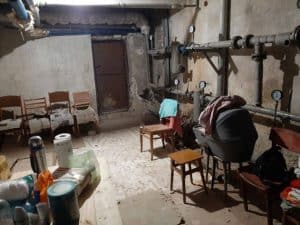
The first problem we faced was feeding the child. It was impossible to buy anything, no diapers, no milk, the neighbors offered old-fashioned methods such as hot water with sugar. We had a heart surgeon nurse with us in the basement, she helped us to contact volunteers. We posted a call for help on social networks, and they spread out very fast. Different people from all over the world called with offers of help. Over time, we contacted the volunteers, and they offered us to bring the required products.
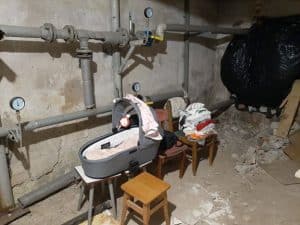
It was also dangerous to leave, as even those civilians who tried to leave in their vehicles were shelled. So, it was scary to do anything. In addition to saboteurs, people began to fear burglars and marauders. One day we were sitting in the basement and at 11 pm someone started to pull the door, there was no light, no neighbors, I covered the child’s mouth with my hand so that she would not scream, because it was not clear who it was. The husband was in the apartment at that time, he went down, but did not find anyone.
On the fifth day, the first of March, the situation did not get better: we were washing the child and a missile landed very close. The blast blew out windows, later we found out that it was a strike into the administration building (this was widely covered in the news), we were in complete shock, grabbed the child and ran to the basement, waiting for what would happen further. Shelling was not stopped with that, so we were waiting all that time wondering what to do. On the fifth day, aircraft began to fly right over the city and drop bombs. The house was shaking.
All this time I practically did not sleep, there is a total stress, concern for yourself, for the child, for the dogs, I slept for a couple of hours a day. You are afraid of shelling sounds, but sounds of silence in the center of megapolis scare at the same scale.
On March 3rd, we left our house and basement after it became clear that it was already incredibly dangerous to stay there. We drove past broken cars, some were with dead people inside. Recalling that in my memory makes my hands shaking. Passing the cars I closed my daughter’s eyes, even though she was just a baby. We moved to a bunker, where it was extremely difficult to live with a child due to the level of sanitation. There were a lot of people and animals. All this time we were sitting there, and I tried to get in touch with my husband to call him to go to me, he was still at home. After 2 hours he arrived, because in the area of ??our house they began to bomb heavily. The bunker was near the Kharkiv maternity hospital, it was dirty inside and smelled of mold, there were two tunnels, one of them was with a heating main. We did not take a stroller with us, but we took a cradle. The baby was there all the time.
We stayed there for a day, and then the news about the Zaporozhye nuclear power plant came on, and a nuclear catastrophe seemed to us already a very likely possibility in addition to everything that already has happened. The first threats of using nuclear weapons flashed in Russian media, so it was already late to hope for the best, and we decided to leave the country, since in the case of a nuclear catastrophe only a miracle could help us survive.
On the same day we decided to leave. The confirmation of our decision was that Russians dropped a vacuum bomb on Chuhuiv (small town some 10 km away south-east of Kharkiv), so we heard the explosion and felt the blast all over the city. Talks began about what to do if suddenly nuclear weapons are used. I began to feel as if I was going crazy and the brain thinks in four directions at once, about the child, about the situation, about myself and what to do next.
At some moments, the stressful state reached the point of absurdity, that you were already going crazy, food and diapers were running out, there were no volunteers, there were explosions around, it got to the point that I wanted to go outside, and hoed it ends even in a bad way. I am ashamed to admit it now, but then it seemed the easiest way out.
It was very scary to leave the shelter, as the city center was bombed and explosions were heard very close. I remember the picture as a man with a woman who had just given birth, literally run across the street risking their lives. Different people remained in the bunker, for example, an elderly couple and their grandchildren, who were 14 and 4 years old, the older one constantly monitored the news and tried to behave calmly, and the younger one cried at every explosion, which inspired an unsettling feeling. Fortunately, the grandchildren safely left the city with volunteers.
Escape from Kharkiv – the decision to leave
We decided to leave by any means, woke up in the morning, took the most necessary food, mostly a lot of goods for the child, the maximum that we could take away and rammed them everywhere. For the first time in two days, I went outside, raised my head, saw planes and snow. An extremely surreal picture, as what was happening was felt foggy. We put all the things they could take away, took at least a few days of food.
When we left, for the first time I saw with my own eyes what happened to the city. I cannot convey this feeling from what I saw by nothing but rape. The city in which I spent my entire adult life from the age of 15 was only a shadow of its beauty and the landscape around was like in a disaster movie.
We arrived at the station, I saw a lot of abandoned cars, a lot of people, literally the entire large station was completely packed and the fear that something might happen there for a second fettered me. It was very cold, since there were only a few rooms on the territory of the station where they were heated and they were completely packed with people in need.
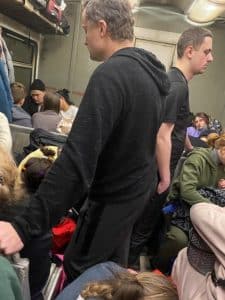
On the train, people slept on the floor, it was crowded. Road took 21 hours; this was a part of an ongoing nightmare. I ran out of boiled water to dilute the milk and feed my daughter, and I simply ran out of water, I had to feed the child with cold milk. There was no one to ask for help, since almost everyone was in a similar situation. Clogged train. Crying children. Emptiness in the eyes of adults.
Part 2: Far from Home, far from Kharkiv.
After 21 hours, we arrived in Ternopil and there my husband’s acquaintances met me and my mother, first they settled us in an apartment with them, and then they offered us to stay at a buckwheat factory. We chose the option with a factory, the locals helped us a lot with food, travel, shopping, for which we are very grateful. The unity between people that was manifested here does not appear under normal conditions, this catastrophe united us all into a large family. We were allowed to use everything that was provided to the employees of the factory. They didn’t take any money from us. We also took our daughter to the pediatrician to make sure that everything is fine. We lived at the factory for 3 days, then we decided to go to Poland, because we did not feel completely safe.
I didn’t have a new passport for foreign travels (but I had an old one), but it wasn’t a problem to cross the border, they let us in, offered to settle in a refugee camp, but we refused, because the child and I needed to get away from stress and feel a comfort. We checked into a hotel for a few days, then stayed with friends for a few days, and about a week later we flew from Poland to Italy. My mother came to Ukraine only because I gave the birth to help me, before that she had lived in Italy for several years, so it was decided to go there.
There were a lot of refugees from Ukraine in Poland, and we were afraid that this could cause problems with accommodation, seeking a job in the future, and so on. Although Poland is much closer to us from a cultural and linguistic point of view, if there were options to go somewhere else, we would still prefer Poland. We are also grateful to all the Poles, especially those who directly helped us, in the hour of need and fear they selflessly rushed to our aid and for all Ukrainians there is no better example of who turned out to be our brotherly people, and who only pretended to be.
We arrived in Italy on March 14th. The first issue that occurred is to make documents, everything was done in a slow pace, that was very unusual for us. Ukraine has been developing rapidly in recent years, especially in the field of digitalization of public services, paperwork, payment and verification could be done just by phone, you quickly get used to such good things. Perhaps in Italy this was not the case for refugees like us, so there were certain difficulties, and if my mother who knows Italian and her Italian husband were not with me, we would have faced many problems.
We issued a payment for refugees here, but we had to simultaneously look for employment in case I could leave my daughter to my mother and go to work myself. We live now in the south of Italy and it was not easy to find a job here even before the influx of refugees, now it is even worse, so it seemed impossible to stay here for a long time. And yet I’m still here. The state has organized free language courses to facilitate integration, several times a week we go to the help center to take free food for the child, this helps a lot, as I slowly but surely cut off my savings, it would be simply impossible to support a child in another country without work and help, and I don’t want to think what I would have to do if the situation were different.
My social anxiety has evolved because it is a different cultural environment and very often people look at me condemningly. Here women usually give birth when they are over 30 years old, but I am a very young mother. Men with their usual “southern” flavor sometimes whistle to my back, many locals look straight in my eyes and turn around when I walk pass them. I’ve been living in Italy for almost a year now and I still can’t get used to it. I would like to return, but the city is still shelled and I put safety above my discomfort. All my time I am busy with either a child or learning language, or studying in my university remotely and preparing for exams. I don’t buy anything for myself here, almost all my present clothes and items are those I took with myself from Kharkiv.
The winter here turned out to be colder than at home, since there is no apartment heating and people heat their houses with gas cylinders, you simply don’t have time to get used to many things and something that you haven’t met forces you to adapt.
It is also very difficult without a car, since we live in a small town, we often have to travel to the regional center to solve certain problems. As a non-citizen, you are very limited in your rights and the services you can receive. When my daughter got sick, we were only able to get an appointment at the hospital in the evening, and buy the needed antibiotic only in the morning. Without any documents, you will not be provided with assistance, and obtaining them is a long and laborious process.
My husband is now in Ukraine and serves in the armed forces, we sometimes call him up if the opportunity arises. My daughter is already over a year old, and she does not know who dad is, although she hears this word. It is difficult for her to socialize here, since almost no one walks with children here, and she does not play with her peers, this worries me in terms of her social development. Children need to interact with other children. I also miss my dogs so much. I try to tell my daughter that we are “guests”, it is dangerous at home now, but we will return there when it gets better.
Part 3. What next? Return to Ukraine?
Many times, I planned to return to Ukraine, if not to Kharkiv, then somewhere where there are relatives. We have an expression that “walls heal in your home”, that is, many problems are much easier to solve in Ukraine than abroad. The trip home was postponed several times, because in the autumn Russia began to bomb power plants to “freeze” Ukraine, in such conditions it was simply impossible to return. Therefore, autumn and winter were out of plan for coming back because of the fear of being in a hopeless situation, when again I would have to ask for help.
So far, in mid-May, I decided to go to my grandmother in my hometown in central Ukraine, then to my husband’s parents, then, when everything is over, I plan to return to Kharkiv. Although they say that life is returning to the city, missiles are still flying in, people are still at risk once again being on the street. As a mother, I cannot allow myself or my child to be in this situation.
After an end of the war, I do not plan to leave Ukraine because of the fear of a new conflict, I was born here, as were my parents, their parents, my daughter. In Kharkiv I met my first love, my husband, I gave birth to my first child. It would seem that in the age of globalization this should not bother me much, but the cultural shackles are too strong, so you cannot easily and simply change your place of residence. I look to the future with optimism and believe that we will definitely win and that Ukraine will succeed in joining NATO in order to protect itself from abnormal neighbors.
A small political remark: in Kharkov, 90 percent of the population spoke Russian, while Russia, according to its officials, came to protect these Russian speakers from harassment. I myself, living in Kharkov, spoke Russian all this time and still cannot understand how I was oppressed here. I felt great until the “liberation” came. Christian culture teaches us to forgive, but I will not find the strength to forgive what happened to my fellow citizens. Imagine Leeloo from The Fifth Element, when she learned the word “war” and looked through the pictures, about the same feeling, mixed with anger and despair, I experienced the first months, just scrolling the news and reading about another nightmare.
Now it makes a lot of effort for me not to project this anger on the upbringing of my beloved daughter, I do not tell her that there are bad people and good people to explain why are we “guests” and cannot go home. When she grows up, I will talk to her about this, but for now I want to show her only the best things around her so she would have a happy childhood not overshadowed with nightmares of the war.
A Mother’s task is to stay strong in any circumstances, because once you become a mother you are directly responsible for the life you created.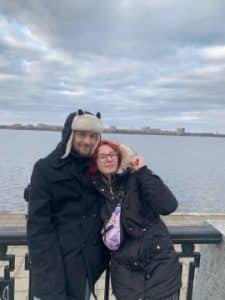
My name is Illia, 27 years old and currently live in Dnipro for more than a year since the war broke out. I also lived in Kharkiv in the most northeast neighborhood of North Saltivka, now it is a pretty beloved place for western officials to visit. I have a bachelor’s degree in personnel management and labor economics, before the war worked as a multilingual sales manager, now working remotely mostly as a translator and data analyst. I left Kharkiv on the 3rd of March when it became extremely dangerous to stay, took a couple of bags, girlfriend, cat, and went somewhere to the nearest city I had friends in. We also dream to come back to Kharkiv, but the situation is too complicated to move there because of fears of moving back again. I went to Kharkiv a couple of times in the spring to repair apartments, and both times it was a pretty stressful feeling.
Here is a short video of Ilia returning to his Kharkiv apartment to get some of his belongings. Note the damage torn apartments







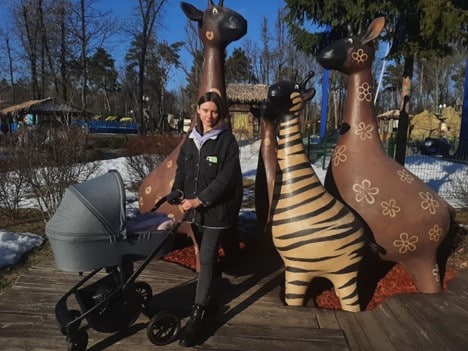



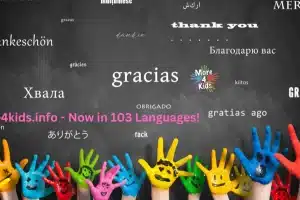

Add Comment